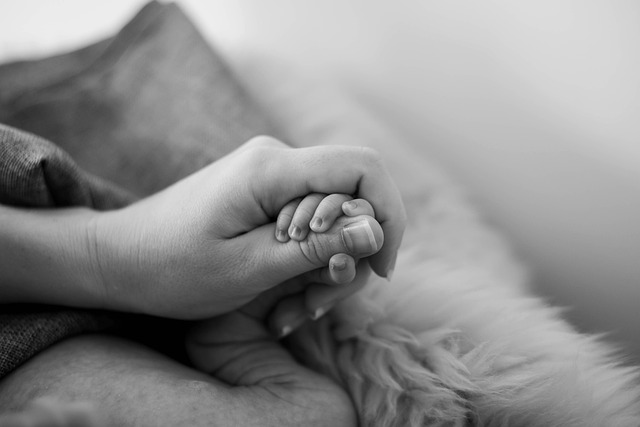Child custody in Oregon is guided by a best-interest standard, prioritizing stability and nurturing environments. The primary caregiving model awards physical custody, often coupled with joint legal custody, through detailed hearings considering financial and medical evidence. Parents and third parties actively participate, presenting cases to ensure informed court decisions. Legal aid, support groups, and community resources assist Oregon families navigating complex child custody laws, offering guidance, representation, and financial assistance.
In Oregon, understanding child custody laws is paramount for families navigating complex relationships. This comprehensive guide delves into the intricacies of Oregon’s child custody regulations, offering a clear roadmap for parents and third parties involved in custody decisions. From court system navigation to various custody arrangements, we explore practical considerations for a smooth process. Additionally, we highlight resources and support systems designed to assist families during often challenging custody battles, ensuring every Oregon parent has access to the necessary tools for successful co-parenting.
- Understanding Child Custody Laws in Oregon: A Comprehensive Guide
- Navigating the Court System for Custody Decisions
- Types of Custody Arrangements in Oregon: What to Expect
- The Role of Parents and Third Parties in Custody Proceedings
- Resources and Support for Families During Custody Battles
Understanding Child Custody Laws in Oregon: A Comprehensive Guide

In Oregon, child custody laws are designed to protect the best interests of the child while ensuring fair and equitable outcomes for all parties involved. The state follows a “primary caregiving” model, where decisions regarding custody are primarily based on which parent can provide the most stable and nurturing environment. This often involves granting joint legal custody, allowing both parents significant decision-making powers, while physical custody may be awarded to one parent with specific visitation rights for the other.
Oregon’s laws also emphasize the importance of open communication and collaboration between parents. Court orders typically encourage shared parenting plans that outline detailed arrangements for child support, visitation, and decision-making. These plans are designed to promote stability and continuity in a child’s life, minimizing the potential trauma often associated with contentious custody battles. Understanding these legal frameworks is crucial for Oregon families navigating the complexities of child custody.
Navigating the Court System for Custody Decisions

Navigating the court system for child custody decisions in Oregon can be a complex and emotional process. Parents involved must understand that the primary consideration is always the best interest of the child. The Oregon court system employs a comprehensive approach to assess factors like stability, parenting plans, and each parent’s ability to provide a nurturing environment. This involves detailed hearings where both parties present evidence, including financial statements, medical records, and character references.
The courts in Oregon encourage collaborative efforts between parents, offering various programs and resources to facilitate agreements without the need for lengthy legal battles. However, when consensus is unattainable, the court will make a decision based on the gathered evidence. It’s crucial for families to be prepared with solid documentation and legal representation to ensure their rights and the child’s best interests are protected throughout the process.
Types of Custody Arrangements in Oregon: What to Expect

In Oregon, child custody arrangements can vary greatly depending on what’s in the best interest of the child. The state recognizes several types of custody agreements, including sole custody, joint custody, and shared parenting plans. Sole custody means one parent has legal decision-making authority for all major aspects of the child’s life. Joint custody, on the other hand, grants both parents significant periods of time with the child and shared responsibilities. Shared parenting plans involve a more equal division of time, where each parent has substantial, regular contact with the child.
When navigating Oregon’s child custody laws, it’s crucial to understand that these arrangements can be tailored to fit each family’s unique situation. Factors like the parents’ employment, living arrangements, and personal circumstances are considered. Court decisions aim to ensure stability and continuity in a child’s life while fostering healthy relationships with both parents, when possible.
The Role of Parents and Third Parties in Custody Proceedings

In Oregon child custody proceedings, both parents and, in some cases, third parties play crucial roles. Parents, as the primary caregivers, have a vested interest and are actively involved in advocating for their children’s best interests. They attend court hearings, submit documentation, and collaborate with lawyers to present their case. Third parties, such as grandparents or close relatives, may also seek custody or visitation rights if they can demonstrate a significant relationship with the child and that it is in the child’s best interest to have them involved.
These roles are vital in ensuring that courts make informed decisions regarding child custody in Oregon. Parents provide firsthand insights into their child’s needs and routines, while third parties can offer alternative perspectives and support systems. This multi-faceted approach helps courts navigate complex situations, ultimately aiming to foster a stable and loving environment for all children involved in custody proceedings.
Resources and Support for Families During Custody Battles

When navigating a child custody battle in Oregon, families can benefit from an array of resources designed to support them during this challenging time. Legal aid organizations offer free or low-cost legal services, providing guidance and representation tailored to each family’s unique situation. These organizations often have specialists who understand the complexities of Oregon’s child custody laws, ensuring parents are informed and prepared for court proceedings.
Support groups and community centers also play a vital role in fostering resilience among families involved in custody disputes. These safe spaces offer peer-to-peer support, allowing individuals to share experiences, gain insights, and connect with others facing similar challenges. Additionally, many local non-profit organizations provide financial assistance for legal fees, childcare costs, and other related expenses, easing the financial burden often associated with child custody cases in Oregon.






